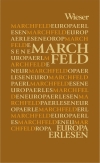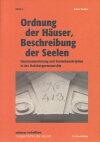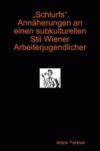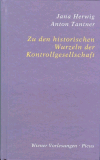Wurst und Nation
Darüber haben meines Wissens nach Laibach noch keinen Düstersong verfasst: Über die Bedeutung der Krainer-Wurst für die slowenische Nationsbildung; denn merke: Die Käsekrainer ist heiß umstritten zwischen Österreich und Slowenien!
Mlekuž, Jernej: The renaissance of sausage: The role of Kranjska sausage in the contemporary process of reconstructing the Slovenian nation, in: Nations and Nationalism, 26.2019, S. 407–423.
doi: 10.1111/nana.12572
Abstract:
"The article discusses the contemporary reconstruction of the Kranjska sausage as a national dish by exploring different actors in this process. This representative culinary object played a significant role in the formation and development of Slovene national consciousness from the Spring of Nations onward, faced devaluation in socialist era and experienced a renaissance in the new millennium, when it was also given a role in the project of the construction of the nation‐state. The modern rebirth of the Kranjska sausage is presented as an interrelated and complex process due to many factors: the efforts of an influential ethnologist, the role of an institution dedicated to the Kranjska sausage, and other persons, groups, and institutions with different objectives, ideas, and understandings. The article conceptualizes nationalizing as an everyday practice, as a network, or collection of people, practices, places, institutions, ideologies, objects, technologies, and ideas that define people's subjectivity and shape their actions and imaginations."
Mlekuž, Jernej: The renaissance of sausage: The role of Kranjska sausage in the contemporary process of reconstructing the Slovenian nation, in: Nations and Nationalism, 26.2019, S. 407–423.
doi: 10.1111/nana.12572
Abstract:
"The article discusses the contemporary reconstruction of the Kranjska sausage as a national dish by exploring different actors in this process. This representative culinary object played a significant role in the formation and development of Slovene national consciousness from the Spring of Nations onward, faced devaluation in socialist era and experienced a renaissance in the new millennium, when it was also given a role in the project of the construction of the nation‐state. The modern rebirth of the Kranjska sausage is presented as an interrelated and complex process due to many factors: the efforts of an influential ethnologist, the role of an institution dedicated to the Kranjska sausage, and other persons, groups, and institutions with different objectives, ideas, and understandings. The article conceptualizes nationalizing as an everyday practice, as a network, or collection of people, practices, places, institutions, ideologies, objects, technologies, and ideas that define people's subjectivity and shape their actions and imaginations."
adresscomptoir -
Alltag - Fr, 18. Sep. 2020, 09:20









